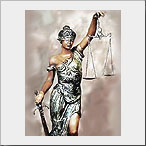When corporations attack


My post Patents are Not Property, attacking an assertion by Microsoft lawyer David Rudin I found both overly-broad and disingenuous, has gotten a predictable response. (Not to mention an attaboy from Jason Matusow.)
My point was that Microsoft is claiming as a magnanimous gesture something that is purely in its business interest, and attempting to equate with land or buildings something (patent rights) which is, under the Constitution, only a limited right, given to authors or inventors for a limited time. So Rudin quotes from a U.S. Patent Office document (describing patents as property) and figures that takes care of me.
His Amen Corner of commenters then pile on the insults. My favorite is this from Fernando:
Dana should apologize twice: for getting such a basic fact wrong, and for being such an a**hole in telling you that you should have stayed offline. I’d rather prefer that Dana stays offline in shame for a while!
No apologies, Fernando. What Microsoft and I have is a political disagreement which firms like Microsoft have, over the last decades, written into our law, overriding the plain language of the Constitution.
That is the whole notion of Intellectual Property. The Founding Fathers would have laughed at such a notion. American publishers routinely ignored foreign copyright claims until the late 1800s, when this country gained a positive balance of power in that area.
Charles Dickens "donated" his "copyright" to the novel Martin Chuzzlewit, an attack on American ignorance, knowing it was worthless under American law. American manufacturing was born at Slater's Mill in Rhode Island, built by a man who illegally emigrated from England, the patented technology hidden in his head.
It was only after patents and copyrights became corporate goods, held by immortal corporations rather than individual inventors or creators -- that this whole idea became Holy Writ. Suddenly copyright and patent lawyers were Intellectual Property attorneys, their hefty fees paid by corporations anxious to wall-off all knowledge to themselves and make everyone else pay them for it forever.
By its nature, the Internet and open source challenge the economic assumptions behind this regime, namely that in its present extreme form (math patented, business methods patented, copyrights extending 100 years, technology controlled by lawyers) it is good for the economy as a whole.
It is not. Reform is needed.
In its "donation" of "patent rights" to the Web Services (XML) portion of Vista, Microsoft acknowledges this fact. Microsoft is better off if others use what it has patented, free and without restriction. Microsoft gains if these technologies become Internet standards. It gains more from this than from enforcing any claimed "property" right to the inventions.
Which is just my point. What Microsoft has done should give lawyers like Rudin pause. Overly-broad patent claims, overly-restrictive copyright claims (which trump technology) are hurting the economy.
If they weren't, Microsoft would be enforcing its "rights," and not encouraging everyone to walk all over its virtual lawn.